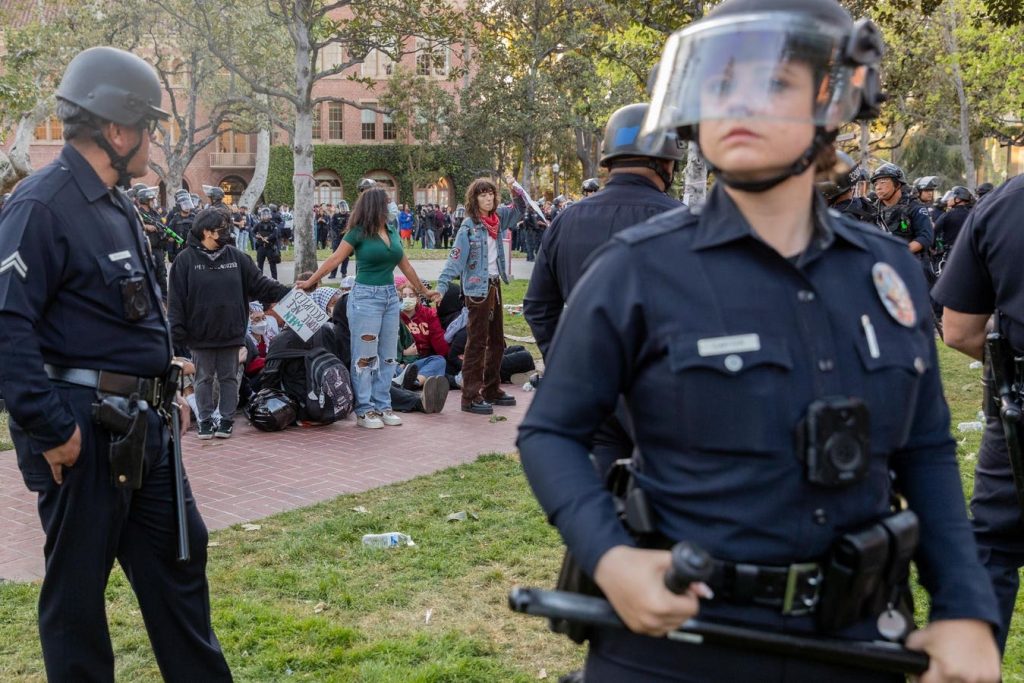The University of Southern California recently announced that it will not host its main commencement ceremony, a decision that comes after more than 90 students protesting in solidarity with Palestinians were arrested by the Los Angeles Police Department. The university cited new safety measures that would increase the time needed to process the thousands of guests who typically attend the ceremony.
The protest at USC was organized by the USC Divest From Death Coalition, demanding the university end study abroad programs in Israel, provide amnesty to campus members disciplined for pro-Palestinian activism, and disclose and divest its finances from companies profiting from “Israeli apartheid, genocide, and occupation in Palestine.” The protesters were released Thursday morning, though tensions still linger, prompting the university to shut down its main campus through the weekend to those without USC identification or legitimate business purposes.
Despite the cancellation of the main commencement ceremony, USC will still hold commencement events for students, requiring tickets for each event and directing all campus access through specific points of entry. The university also faces criticism over its decision to cancel a speech by valedictorian Asna Tabassum, whose social media posts supporting Palestinians were flagged as antisemitic. USC said the decision was based on unspecified security threats to Tabassum and the commencement ceremony.
USC is one of several universities in the U.S. facing pro-Palestinian protests, with similar demonstrations at the University of Texas at Austin, Yale University, and Columbia University. Students at these universities have been arrested for demanding divestment from companies supplying weapons to the Israeli Defense Forces and protesting Israel’s actions in Gaza. Columbia University’s president, Nemat Shafik, is facing calls to step down over the university’s handling of student protests, leading to donor suspensions and support from the board of trustees.
The escalating tensions on college campuses highlight the ongoing conflict in the Middle East and the impact it has on academic institutions and their students. These protests underscore the importance of freedom of speech and expression on campus, as well as the need for universities to address diverse perspectives and ensure the safety and well-being of all students. The controversy surrounding these protests and the responses from university administrations raise questions about the role of universities in political and social issues and the challenges they face in navigating complex and polarizing topics.


